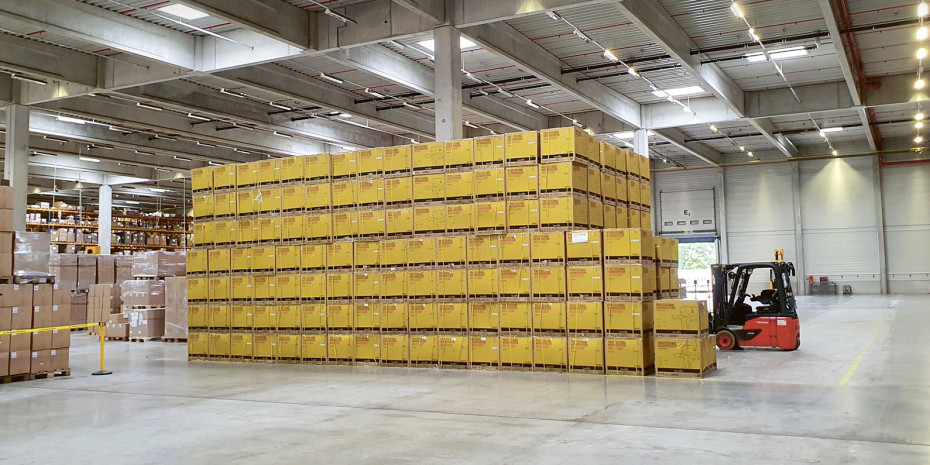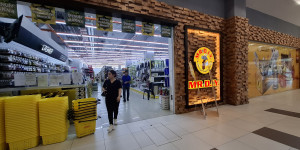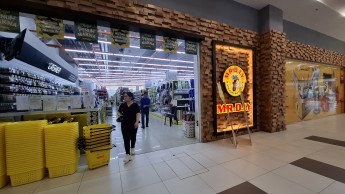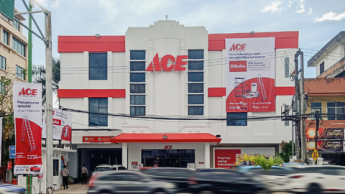When it comes to grilling, the biggest question is: gas or charcoal? Gas is easier and requires less prep time. It’s also easier to clean the grill afterwards. But charcoal is the only way to get the flavor that many grill fans are so keen on. “With our Char-Broil Gas2Coal, customers get both. This hybrid grill is our best seller in Germany,” says Gerrit Gabert, Head of Logistics Europe for the company based in Georgia, US. Char-Broil launched the first cast-iron charcoal grill on the US market in 1948. Today, its products range from gas, charcoal, and electric grills to smokers.
The “grill wall” in Malsch
Grilling is a seasonal business. “We’re definitely not an easy customer for our logistics partner,” Gabert freely admits. More than 80 percent of goods movements happen in the first six months of the year. At the start of the year, products from Asia come to Europe by sea. The goods are first checked at the Dachser warehouse in Malsch, near Karlsruhe, Germany, then stored in block stacking. A clamp truck takes the grill cartons and stacks them up to ten high. In Malsch, this structure is fondly known internally as the “grill wall.” At the start of the season, as many as 60 000 grills are stocked here. Then there are accessories such as pizza stones, rotisserie spits, and care utensils. These products are sorted onto pallets and stored. In total, some 250 000 Char-Broil items make their way to Malsch. But these products need to be in stores no later than early March. “It’s always a bit weather dependent, but our high season starts no later than Easter,” Gabert says.
Experience in DIY
The warehouse in Malsch was chosen because it’s right in the center of the European sales area. The grills go to customers in 16 countries, particularly Germany, France, Italy, Spain, and Poland. Char-Broil’s preferred retail partners are garden centers and home improvement stores, but online retail plays an important role, too. “We chose Dachser for two reasons,” Gabert says. The first is its combination of warehouse and transport. The second is the specific expertise that the company combines in its Dachser DIY Logistics industry solution. DIY (do-it-yourself) or home improvement stores refer to specialist retailers, garden centers, and building supply stores.
“Our standard services combined with bespoke logistics solutions and our industry expertise create a competitive advantage for our customers,” says Jens Wollmann, Head of Corporate Solutions at Dachser. “Our specialists…

 Menü
Menü












 Newsletter
Newsletter